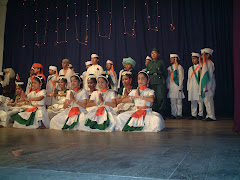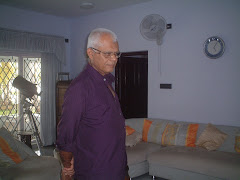In our personal lives as in our public, we encounter numerous situations that seem unfair and unjust. Most of these challenges seem so insurmountable that we are vexed by it. We are convinced of the justness of our cause and angered by the injustice meted out to us and the more we try to solve them, the more we seem to be sinking into a fury from which there seems to be no escape. In our minds, we rationalize our violent behavior as a desperate measure to earn well-deserved justice but in truth we poison ourselves with the very hate that made us its victims.
Consider a housewife who has no opportunity to explore the outside world but is shackled in the seclusion of her home by household responsibilities like raising children, cooking, washing, etc. She resents the isolation and the perceived degradation of her intellectual acumen, loss of respect, and financial dependence, and envies the freedom enjoyed by her husband who trots in and out of the house with ease, unhampered by monotonous chores, mingling with friends and coworkers; a freedom that she feels is denied to her. The more she ponders about the unjustness of her situation even though she may be extremely loving and caring and a great mother and wife, the more vexed she will become. Soon the very home, she wishes to make a haven of peace and happiness through her sacrifices, take on the appearance of a prison that seems to throttle her dreams and aspirations.
Consider the victim of a communal pogrom, riot or ethnic cleansing. His helplessness, anger, and victimization seem undeniable, the wickedness of his tormentors unquestionable. As societies and countries move on, forgetting and sometimes even denying true justice, wounds fester and righteous anger takes on dangerous proportions until existence itself becomes undesirable and revenge the only plausible solution for peace.
Consider the victim of incest, parental abuse or alcoholism. The victim is convinced of the rightness of his anger, the cruelty of the perpetrators and the need to punish and/or obtain justice. In his mind, peace can descend only when justice has been rendered.
In all these situations, we find that the justness of the victim’s cause is undeniable and the very raison d’être of his anger comes from justice not being delivered. The core belief is that peace can exist only when justice prevails but that alas is its real tragedy. For peace, like happiness is subjective.
If you decide that there will be peace, then there will be. This very moment you can choose to revel in its soothing glory and be calmed by its descent or you can cling on to your bitterness and be destroyed by your anger.
This is not an easy path to follow and every moment we have to renew afresh our determination to remain peaceful. Sometimes crises arise which shake our resolve but we must persevere and get up after each fall.
Does this approach make us run away from our problems?
On the contrary, our decision to choose peace is the first step towards creating an atmosphere which will help us work fruitfully towards our genuine goals. This peace that I am willing to open my heart to, the loving surrender of my trust to God is for me Islam, my religion.
WELCOME!
Mind is turbulent like wind but when held immobile through powerful concentration can unlock the secrets of the universe.
This is a rendezvous for contemplating about human existence, mysteries of the mind, and importance of wisdom in daily life. Perhaps when we look at the larger picture, when we are reminded of the true meaning of life, we can strive for a better world filled with understanding, mutual respect and peace.

Subscribe to:
Post Comments (Atom)

Please do not hesitate to leave your valuable comments.
I look forward to reading your thoughts and gaining new ideas.





No comments:
Post a Comment